Inclusion Works!, a California Department of Education publication designed to provide guidance on proven strategies that promote belonging and inclusion for all children, has an updated second edition. This publication was funded by the California Department of Education, Early Learning & Care Division and developed collaboratively by California MAP to Inclusion & Belonging… Making Access Possible director, Linda Brault. Building on research and the experience of years of effective implementation, this handbook contains stories and examples, as well as background information and resources that support strategies for successful inclusion. Suggestions for ways to adapt the environment are provided, along with examples of inclusive strategies. The new edition contains information on Universal Design for Learning and has accompanying videos. A glossary and appendices make this handbook a practical tool for care providers.
Additional Tools
Inclusion Works! Creating Child Care Programs That Promote Belonging for Children with Disabilities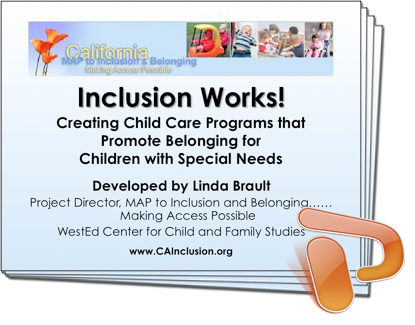
Updated: August 2021The book is described and explored as part of the Inclusion Works! Training PowerPoint™.
Added: Jul 2014 | Updated: Aug 2021
California Department of Developmental Services (DDS)
The California Department of Developmental Services (DDS) is the agency through which the state of California provides
services and supports to children and adults with developmental disabilities. These disabilities include mental retardation, cerebral palsy, epilepsy, and autism and its related conditions. DDS is California’s lead agency for services for children birth to three years of age, as defined under Part C of the Individuals with Disabilities Education Act (IDEA ’04).
For information on programs and resources for children ages birth to 3
visit the Birth to 36 Months Home Page.
There are several Web links for agencies and services related to Early Start:
Added: Aug 2014 | Updated: Jan 2021
California Department of Education, Before & After School DivisionThe home page for the California Department of Education, Before & After School Division includes links to programmatic and fiscal resources to build, implement, and sustain quality before and after school programs, including school-age care and other out-of-school opportunities for children and youth.
Added: Aug 2014 | Updated: Mar 2019
California Department of Education, Early Learning and Care Division (ELCD)On September 18, 2018 the California Department of Education, Early Learning and Care Division (CDE/ELCD), formerly the Early Education and Support Division, announced its new name and the 2018-2023 Strategic Plan (PDF). The new name captures their role in supporting a mixed-delivery system that incorporates multiple funding streams and supports children birth through age 12. The ELCD’s vision is that, “All California’s children have a strong early learning and care foundation, supporting the whole child and school and lifelong success.” Its mission is to “Lead an innovative, inclusive, and high-performing early learning and care system by advancing equitable opportunities that optimize thriving children, families, and communities.”
Early Learning and Care Division (ELCD) Resources page on the CDE Website
Re-Opening: Updated Guidance for Child Care Programs and Providers
-
Additional Resources from ELCD
 Access to Inclusive Early Learning and Care Programs for Students with Disabilities May 2019
This letter from the California Department of Education reaffirms expectations for access to inclusive early learning and care programs for students with disabilities in California. As California continues to pursue a system of education that adequately addresses the needs of each and every student in the least restrictive environment (LRE), providing access to inclusive early learning opportunities for students with disabilities is fundamental.
Access to Inclusive Early Learning and Care Programs for Students with Disabilities May 2019
This letter from the California Department of Education reaffirms expectations for access to inclusive early learning and care programs for students with disabilities in California. As California continues to pursue a system of education that adequately addresses the needs of each and every student in the least restrictive environment (LRE), providing access to inclusive early learning opportunities for students with disabilities is fundamental.- California Department of Education Streaming Video Collection May 2019
The Early Learning and Care Division launched the California Department of Education Streaming Video Collection, an online streaming video subscription service. Users may now access the companion videos for California’s educational resources on one simple platform.
- Resources for Homeless Children and Youths
Resources related to homeless students' rights to enroll and participate fully in school.
- Race to the Top Early Learning Challenge Grant Implementation (RTT-ELC)
- Child Care Funding Testimony by State Superintendent of Public Instruction Tom Torlakson
- California Comprehensive Early Learning Plan Resources (CCELP)
- California's Early Care and Education Training Portal
Assists you to locate:
- Professional development programs funded by California Department of Education, Early Learning and Care Division
- Some ECE and child development public college online coursework
- Health and safety trainings.
- California Early Childhood Online (CECO)
To support early childhood teachers, the California Early Learning and Development System provides an integrated set of resources based on state-of-the-art information for early learning and development and best practices in early education. The courses provided on the California Early Childhood Online (CECO) Web site enable teachers to increase content knowledge and ability to provide developmentally appropriate experiences for children in their care. Meeting the developmental needs of young children and their families requires a comprehensive approach. CECO provides access to comprehensive resources and courses in one centralized location to meet the ever-changing needs of the early childhood field.
- All About Young Children
The ELCD is pleased to announce the online publication All About Young Children: Information for Families on Children's Early Development. This publication provides resources for families based on the California Infant/Toddler Learning & Development Foundations and the California Preschool Learning Foundations. It is now available at http://allaboutyoungchildren.org. This website presents information for families that focuses on key infant/toddler learning and development foundations and preschool learning foundations and includes discussion about those foundations by groups of parents.
- Early Childhood Educator Competencies Videos
The California Early Childhood Educator (ECE) Competencies describe the knowledge, skills and dispositions that early childhood educators need in order to provide high quality care and education to young children and their families.
- Family Engagement Framework
- Bridges 2014 E-Journal
This issue of Bridges will focus on the California Collaborative on the Social and Emotional Foundations for Early Learning (CA CSEFEL), which promotes the social–emotional development and school readiness of young children from birth to age five.
- Seeds of Partnership
Seeds of Partnership assists special educators, administrators, staff, and families involved in programs for children with disabilities. We aim to create or provide avenues and tools to increase improvement of partnerships, provide professional development resources, and tools that will assist LEAs seeking to improve their family engagement program practices and educational outcomes. This project is funded by the California Department of Education (CDE), Special Education Division (SED) and is under the auspices of the Sacramento County Office of Education.
Added: Jul 2014 | Updated: Jun 2020
California Department of Education, Special Education DivisionThe home page for the California Department of Education, Special Education Division, links to current information about services and programs provided by the department.
Added: Aug 2014 | Updated: Mar 2019
California Department of Health Care Services, Children’s Medical ServicesThe Children’s Medical Services Branch (CMS) provides a comprehensive system of health care for children through preventive screening, diagnoses, treatment, rehabilitation, and follow-up services. CMS is a full-scope management system for California Children’s Services (CCS) and the Genetically Handicapped Persons Program.
Additional Resources
Added: Aug 2014 | Updated: Mar 2019
California Department of Health Care Services, Mental Health Services DivisionAssembly Bill 102, which Governor Brown signed into law on June 28, 2011, requires the transfer of Medi-Cal-related mental health functions from the Department of Mental Health to the Department of Health Care Services (MHSD) by July 1, 2012. This is not a change in mental health benefits or eligibility. Medi-Cal-related mental health functions are now handled by the Mental Health Services Division.
Added: Aug 2014 | Updated: Mar 2019
California Department of Social ServicesThe mission of the California Department of Social Services is to serve, aid, and protect needy and vulnerable children and adults in ways that strengthen and preserve families, encourage personal responsibility, and foster independence.
Additional Resources
Added: Aug 2014 | Updated: Mar 2019
First 5 California (California Children and Families Commission)Californians believe that our state’s children are a top priority. That’s why in 1998 voters passed
Proposition 10, adding a 50-cent tax to each pack of cigarettes sold to create First 5 California, also known as the California Children and Families Commission. First 5 California is dedicated to improving the lives of California’s young children and their families through a comprehensive system of education, health services, childcare, and other crucial programs. Since its creation, First 5 California has brought these critical services to millions of parents, caregivers, and children ages 0 to 5, and we’re striving to reach thousands more every day.
For information about local First 5 activities see Family Resources.
Added: Aug 2014 | Updated: Jul 2019
Beginning Together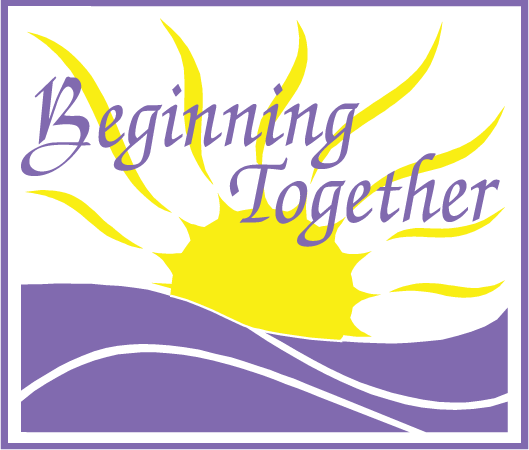
Beginning Together was created in collaboration with the California Department of Education, Early Learning and Care Division (ELCD) and WestEd, Center for Child and Family Studies as an inclusion support to the Program for Infant/Toddler Caregivers (PITC).
The purpose of Beginning Together is to ensure that children with special needs are incorporated, and appropriate inclusive practices are promoted, in the training and technical assistance provided by the existing cadre of CDE/WestEd certified trainers in the PITC. This is accomplished through a "training of trainers" institute, regional outreach activities, revision/development of written materials, support to institute graduates, and support of inclusive practices in other PITC activities, such as the demonstration programs.
Added: Aug 2014 | Updated: Jan 2020
California Preschool Instructional Network (CPIN)California Preschool Instructional Networks (CPIN) provides professional development and technical assistance to preschool teachers and administrators to ensure that preschool children are ready for school. The CPIN is organized utilizing the 11 regions designated by the California County Superintendents Educational Services Association (CCSESA). There is a Regional Lead, a Special Education Lead, and an English Learner Lead stationed in each of the eleven regions throughout the state of California.
- Calendar of Events
Look here for trainings on inclusion topics including Inclusion Works! and English Learners with Disabilities and Other Special Needs
Added: Aug 2014 | Updated: Feb 2019
CalSTAT (California Services for Technical Assistance and Training)CalSTAT (California Services for Technical Assistance and Training) is a special project of the California Department of Education, Special Education Division, located at Napa County Office of Education. It is funded through the Special Education Division and the California State Personnel Development Grant (SPDG). The SPDG, a federal grant, supports and develops partnerships with schools and families by providing training, technical assistance and resources to both special education and general education.
Added: Aug 2014 | Updated: Mar 2019
Center for Prevention & Early Intervention (CPEI)WestEd’s Center for Prevention and Early Intervention in Sacramento, provides statewide high quality training, technical assistance and resource development, dissemination, and support to state agencies and community programs that administer or provide prevention and early intervention services. The state agencies have included the California Departments of Education, Developmental Services, Health Services, Social Services, Mental Health, and Alcohol and Drug Programs.
The Center for Prevention and Early Intervention is recognized as California's premier source of training, technical assistance and resource development and provision supporting early intervention services for infants and toddlers with disabilities and at-risk conditions and their families.
-
Additional Resources from CPEI
- California Early Intervention Technical Assistance Network CEITAN-California Early Start
CEITAN is the "home base" for the Early Start Comprehensive System of Personnel Development, a collaborative effort sponsored by the California Department of Developmental Services, planned in collaboration with the California Department of Education, and administered by the WestEd Center for Prevention and Early Intervention. Through multi-modal training and technical assistance, the Early Start Comprehensive System of Personnel Development delivers the knowledge and skills that ensure that early intervention professionals are qualified and that services to infants and toddlers with disabilities and their families are provided statewide in a coordinated and family-centered system.
- Early Start Institute
Early Start Online is part of a new, multi-modal delivery model that complements the EARLY START INSTITUTES. At the heart of both delivery models is the comprehensive, evidence-based content that the field has come to expect from Early Start personnel development. It provides the core curriculum and learning outcomes for both online and face-to-face training.
<!-- - Early Start Neighborhood
This environment provides a virtual community for Early Start professionals and partners seeking training, technical assistance and resources on early intervention Part C requirements, implementation, and evidence-based practices.
-->
- Early Start Online Modules: "Early Start, Early Childhood Special Education and California's Tiered Quality Rating and Improvement System (TQRIS)"
Provides a self-paced, interactive learning resource to acquire knowledge about key players and components in California's TQRIS, system intersections across Part C, Part B 619 and TQRIS activities and the relationships between high quality early learning programs and natural/least restrictive environments.
Added: Aug 2014 | Updated: Feb 2019
Desired Results Access Project
Desired Results Access Project assists the California Department of Education, Special Education Division (SED), in implementing the DRDP Assessment System to measure the progress of California's preschool-age children with IEPs. The Desired Results access Project web site offers information and resources to assist special educators, administrators, and families in participating in the Desired Results assessment system. You can view and download the two Desired Results assessment tools used with preschool-age children with IEPs: the PS DRDP-R (including instructions for use with children with IEPs) and the DRDP access.
- Desired Results Access Video Initiative Library (Video)
Desired Results Access Project Video Library supports early childhood practitioners' use of video in their work. The videos on this page were produced in collaboration with our partners in this initiative, including staff from the Los Angeles Unified School District, the Sacramento County Office of Education, the Santa Clara Office of Education, and the Riverside County Office of Education. Check back from time to time as new clips are added periodically. Here is a recent addition:
Added: Aug 2014 | Updated: Feb 2019
Kids Included Together (KIT)KIT stands for Kids Included Together, a registered 501(c)(3) non-profit organization that was founded in San Diego, California in 1997. The mission of Kids Included Together is to support recreational, child development, and youth development programs that include children with and without disabilities. KIT's goals are to enrich the lives of all who participate and to increase understanding and acceptance of disabilities as a natural part of life. We invite you to explore our site and learn more about our work in San Diego County and across the nation.
- Summer Camp Means Fun for All: How to Create a More Inclusive Camp May 20, 2022
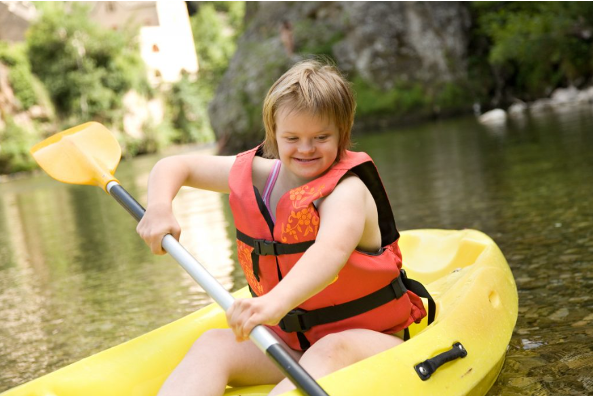 Kids Included Together (KIT) says, “Pinpointing exactly what it means and looks like to be inclusive can be tough because creating a sense of belonging for each child will differ from person to person and camp to camp. But, that’s really what it is – creating a sense of belonging for each camper.”
“So, where do you start and how do you know if you’ve gotten there? Well, providing a meaningful experience for every camper may look varied, but it will be rooted in a few universal principles.” This article provides helpful considerations to add to KIT’s inclusion checklist.
Kids Included Together (KIT) says, “Pinpointing exactly what it means and looks like to be inclusive can be tough because creating a sense of belonging for each child will differ from person to person and camp to camp. But, that’s really what it is – creating a sense of belonging for each camper.”
“So, where do you start and how do you know if you’ve gotten there? Well, providing a meaningful experience for every camper may look varied, but it will be rooted in a few universal principles.” This article provides helpful considerations to add to KIT’s inclusion checklist.
- Additional Resources from KIT
- KIT: Top 5 Trends in Disability Inclusion 2018 Sept 2018
Kids Included Together (KIT) is leading the field in disability inclusion and behavior support through work with over 450 organizations in the United States, Europe, Asia, and Australia. Using research, media, and recent KIT data from 625 training sessions, 100 online courses, 325 onsite visits, and 1,752 support center calls, we have identified the top 5 trends in childhood disability inclusion. In 2018, we can exploit these trends to help increase meaningful inclusion of children with disabilities in schools and communities.
- Inclusion Resources: Videos, Tip Sheets, Checklists, Guidebooks and Websites Sept 2018
- Who We Are-Our Work: Publications Sept 2018
- What is Inclusion? (PDF) Sept 2018
Added: Mar 2015 | Updated: Jul 2022
Least Restrictive Environment (LRE) Resources ProjectThe Least Restrictive Environment (LRE) Resources Project, operated by WestEd for the California Department of Education, develops resources for use by districts and sites to improve services for all students. To achieve this goal, the project is establishing a network of leadership sites and consultants that focuses on teacher training, mentoring, facilitating, technical assistance, and specialized materials.
Added: Aug 2014 | Updated: Mar 2019
California Department of Education: California Parent OrganizationsLists California agencies providing resources for families of children with disabilities including Parent Training & Information Centers, California Community Parent Resource Centers, and Family Empowerment Centers.
Added: Aug 2014 | Updated: Mar 2019
Family Resource Center Network of California (FRCNCA)The FRCNCA is a coalition of California's 47 Early Start Family Resource Centers. Staffed by families of children with special needs, family resource centers offer parent-to-parent support and help parents, families, and children locate and use needed services. They offer support services and resources in many languages, which may include newsletters, resource libraries, websites, parent-to-parent groups, sibling support groups, warmlines, and information and referral for parents and professionals.
Added: Aug 2014 | Updated: Mar 2019
American Speech-Language-Hearing Association (ASHA)The American Speech-Language-Hearing Association (ASHA) is the professional, scientific, and credentialing association for more than 103,000 audiologists, speech-language pathologists, and speech, language, and hearing scientists. ASHA’s mission is to ensure that all people with speech, language, and hearing disorders have access to quality services to help them communicate more effectively.
Added: Aug 2014 | Updated: Mar 2019
Division for Early Childhood (DEC)The Division for Early Childhood (DEC) is an organization designed for individuals who work with—or on behalf of—children with special needs, birth through age eight, and their families. DEC, a subdivision of the Council for Exceptional Children (CEC), is dedicated to promoting policies and practices that support families and enhance the optimal development of children. Children with special needs include those who have disabilities or developmental delays, are gifted/talented, or are at risk of future developmental problems.
- Resources within Reason
Resources Within Reason is a bi-monthly, one-way listserv. Each issue focuses on a topic of interest to individuals who support young children and their families, with emphasis on children with or at risk for disabilities. All featured resources are free. The content of Resources within Reason is coordinated by Camille Catlett. The listserv is supported by DEC. All or part of Resources within Reason may be freely shared or copied.
- Recommended Practices: A Comprehensive Guide for Practical Application in Early Intervention/Early Childhood Special Education
A DEC initiative that bridges the gap between research and practice, offering guidance to parents and professionals who work with young children who have or are at risk for developmental delays or disabilities.
Added: Aug 2014 | Updated: Mar 2019
Infant Development Association of California (IDA)The Infant Development Association of California (IDA) is a multidisciplinary organization of parents and professionals committed to optimal developmental and positive social and emotional outcomes for infants, birth to three, with a broad range of special needs and their families. IDA advocates improved, effective prevention and early intervention services while providing information, education, and training to parents, professionals, decision makers, and others.
-
Additional Resources from IDA
- Public Policy
The public policy committee keeps the organization informed about and involved in the public policies and analyzes pressing policy issues related to laws and regulations, communicates key findings and program performance results, and makes recommendations to the organization for appropriate actions in the form of strategies to ensure quality outcomes.
- Webinars on the social and emotional development of young children
Training & Technical Assistance
- IDA/MAP Webinar Series
"Ideas Worthy of Replication," hosted by the Interdisciplinary Collaborations for Quality Committee of the Infant Development Association and co-sponsored by the Infant Development Association and the MAP to Inclusion and Belonging Project of WestEd Center for Child and Family Studies. The goals of this webinar series are to bring attention to quality trainings and programs rooted in the concepts and knowledge areas of the California Competencies documents including:
- IDA/MAP Webinar Series Recordings
This series will inspire others to develop similar programs or training to make them more accessible to others throughout the state. Each recording last just under an hour.
Added: Aug 2014 | Updated: Feb 2019
National Association for the Education of Young Children (NAEYC)
The National Association for the Education of Young Children (NAEYC) is the nation’s largest organization of early childhood professionals and others dedicated to improving the quality of early childhood education programs for children birth through age eight. NAEYC’s primary goals are to improve professional practice and working conditions in early childhood education and to build public understanding and support for high-quality early childhood programs.
-
Additional NAEYC Resources
Cultural Competency & Family Engagement
Healthy Mind, Health Body
Policy/Trends
- Public Policy Overview
NAEYC promotes national, state and local public policies that support a system of well-financed, high quality early childhood education programs in a range of settings, including child care centers, family child care homes, and schools.
Social-Emotional & Behavior
- Promoting Social–Emotional Development: Helping Infants Learn About Feelings (PDF)
Starting from birth, infants begin learning how to make sense of their world through interactions with caregivers. Responsive caregiving-which involves caregiver reflecting and validating a child’s feelings and behaviors-help very young children makes sense of their world. Over time, children who have this type of nurturing, reflective care better regulates their emotions.
- 10 Tips for Raising a Compassionate Toddler
Recent research shows that infants and toddlers are far more empathetic than we once thought. While they have short fuses, and don’t cope well with sharing, they are capable of being compassionate. With this in mind, here are ten tips I use in the classroom to help infants and toddlers become pro-social that families can also try at home.
- NAEYC Radio
NAEYC and BAM Radio Network partnered to bring NAEYC Radio. The program was developed to bring the best and latest insights on early childhood education directly to parents and educators.
- 10 tips for Raising a Compassionate Infant Toddler
- Helping Infants Learn About Feelings (PDF)
- Standing Together Against Suspension and Expulsion Joint Policy Statement (PDF)
A group of more than 30 national organizations recently published a joint statement, Standing Together Against Suspension and Expulsion in Early Childhood: A Joint Statement (April 2016), which supports the recommendations from the U.S. Departments of Education and Health and Human services in their December 2014 Joint Policy Statement on Expulsion and Suspension. The organizations have also compiled a number of related resources to help states, districts, communities, and classrooms prevent, limit, and ultimately eliminate suspension and expulsion in early childhood education.
- Caring Relationships: The Heart of Early Brain Development By Ron Lally and Peter Mangione
Added: Aug 2014 | Updated: Feb 2021
National Disability & Inclusion Resources
Center for Inclusive Child Care (CICC)
The mission of the Center for Inclusive Child Care is to create, promote and support pathways to successful inclusive care for all children. The project is a comprehensive resource network for promoting and supporting inclusive early childhood and school-age programs and providers. We provide leadership, administrative support, training, and consultation to early care and education providers, school-age care providers, parents, and the professionals who support providers and parents of children with special needs. The Center for Inclusive Child care envisions weaving the common threads of knowledge, respect and sensitivity to create and sustain opportunities for high quality, culturally responsive inclusive care in which children and their families are supported and nurtured.
Added: Aug 2014 | Updated: Dec 2019
Center for Parent Information and Resources (CPIR)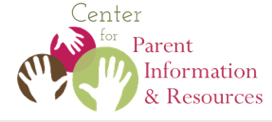
The Center for Parent Information and Resources (CPIR), produced under the US Department of Education Office of Special Education, serves as a central resource of information and products to the community of Parent Training Information (PTI) Centers and the Community Parent Resource Centers (CPRCs), so that they can focus their efforts on serving families of children with disabilities. The site provides resources by topic area, some in English and Spanish and when available, by state.
-
Additional Resources from CPIR
- Trauma Informed Resource Collection Dec 2018
- Tools That Empower Spanish Speaking Families
- Index to Resources in Spanish for English speakers and link to the index that is entirely in Spanish
- A Resource Collection on Positive Behavior Supports, Functional Behavioral Assessment, and School Discipline Nov 2017
Welcome to this collection of resources on positive behavior supports and discipline of children with disabilities. The collection has been developed by a team of Parent Centers, specifically for the Parent Center network to use in their work supporting and empowering parents and families of children with disabilities.
- Rare Disorders: Disability Fact Sheet Published: June 2017
Roughly 7,000 rare diseases/disorders have been identified as affecting the human race. Because they are rare, it can be a real challenge for a person to be accurately diagnosed. Finding effective treatments, especially medicine, can also be a challenge—and for the same reason. Rareness.
If you have a rare disease, know someone who does, or work with people who might, here’s a core of resources we hope are helpful.
- Parent Technical Assistance Centers
Parent centers work to improve educational outcomes for children and youth with all disabilities (emotional, learning, mental, and physical). There are ten parent centers in California.
- Fact Sheet on the Rights of Immigrant Children
- NICHCY's New Home Sept 2014
September 30, 2014 was NICHCY's last day after more than 20 years of service. Happily, most of NICHCY's resources will stay in their new home at the Center for Parent Information and Resources.
- Developing culturally Responsive Approaches to Serving Diverse Populations: A Resource Guide for Community-Based Organizations Mar 2017
This 30-page resource guide, produced by the National Research Center on Hispanic Children and Families, identifies easily accessible resources on cultural competency that CBOs can use to become more responsive to the needs of their targeted populations, and to help attract funds to support their important work.
Added: Oct 2014 | Updated: Jul 2019
Disability Is NaturalThis Web site created by Kathie Snow includes her widely used article on “people-first language” and other resources to support inclusion. She challenges outdated ways of thinking and helps parents, people with disabilities, and professionals acquire new perceptions and attitudes—the first rung on the ladder of change.
Added: Aug 2014 | Updated: Mar 2019
Early Childhood Technical Assistance (ECTA)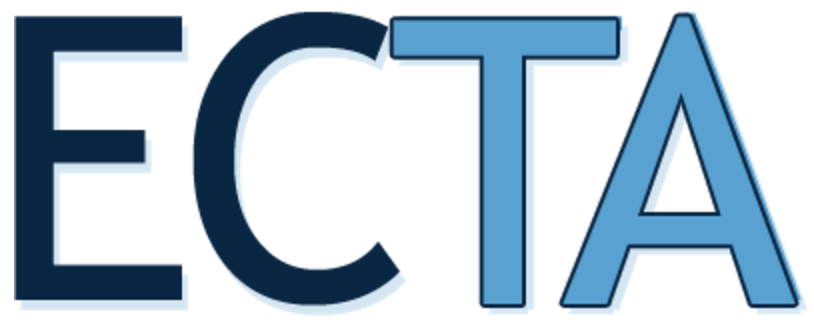
ECTA is comprised of several recent OSEP-funded TA centers (NECTAC, CELL and TACSEI and ECO within the next two years). The purpose of ECTA is to improve state early intervention and early childhood special education service systems, increase the implementation of effective practices, and enhance the outcomes of these programs for young children and their families.
-
Additional Resources from Early Childhood Technical Assistance Center
- State Early Childhood Inclusion Self-Assessment (PDF) July 2017
- Pennsylvania Preschool Inclusion Self-Evaluation Tool
- ECTA Center for Families to help families understand their right under the Individuals with Disabilities Education Act (IDEA), connect with other families and find high quality resources related to caring for infants, toddlers and young children with disabilities.
- Recursos en Español (Resources in Spanish)
- Inclusion in Least Restrictive Environments
Designed for the administrators of state agencies responsible for services to young children and their families, including child care, Head Start, education, and early intervention. It has compiled information for administrators who are challenged with developing policies and programs that lead to inclusive comprehensive and coordinated services for all young children, ages birth to 8 years, and their families.
- Preschool Inclusion Finance Toolkit 2017 (PDF)
An update of ECTA Center's resource that addresses updated guidance in the Dear Colleague Letter on Preschool Least Restrictive Environments published earlier this year. Worksheets included in this toolkit:
- Early Intervention Program for Infants and Toddlers with Disabilities (Part C of IDEA)
Provides a listing by state of the websites of the organizations responsible for early intervention for babies with developmental disabilities
- Developing High Quality Functional IFSP and IEP Goals –Training Package
This training package has been developed collaboratively with staff from the ECTA Center and WRRC in response to the need expressed from state and local providers to have specific information and resources about developing Individualized Family Service Plan (IFSP) outcomes and Individualized Education Plan (IEP) goals. First introduced in September 2012, this revised training package includes: an introductory video; a set of six fully scripted PowerPoint presentations; handouts, activities and supplemental materials; and how states have used and adapted the materials.
- Inclusion in Least Restrictive Environments
- Position Statements on Inclusion from National Organizations
- Research and Studies on Inclusion
- Personnel Development for Inclusion
- Recommended Practices
The OSEP funded Early Childhood Technical Assistance Center (ECTA) has launched a campaign to bring widespread awareness about the DEC Recommended Practices (RPs). The latest ECTA resources to support implementation of the RPs include Performance Checklists for practitioners as well as Practice Guides for Practitioners and Practice Guides for Families. These resources were highlighted on a recent national webinar which was recorded and can be accessed in aRPy's Corner of the ECTA web site.
- ECTA Webinar Series: Upcoming and Archived:
Added: Oct 2014 | Updated: Jan 2021
Fathers NetworkThe Fathers Network is a nonprofit organization that serves as an advocate for men and believes they are crucially important in the lives of their families and children. The network provides supports and resources to fathers and families of children with developmental disabilities and chronic illness, as well as to the professionals who serve them.
Added: Aug 2014 | Updated: Mar 2019
National Professional Development Center on Inclusion (NPDCI)The National Professional Development Center on Inclusion (NPDCI) is working with states to ensure that early childhood teachers are prepared to educate and care for young children with disabilities in settings with their typically developing peers.
-
Additional Resources from NPDCI
- Early Childhood Inclusion
Two major early childhood organizations, DEC and NAEYC, created a joint definition and position statement on early childhood inclusion through a process facilitated by the National Professional Development Center on Inclusion (NPDCI). Return here often to discover new resources and examples for using these resources to improve early childhood services.
- Foundations of Transition Video
Today, most families of young children use and move between different types of early childhood services -- like Head Start, private child care, public preschool, or kindergarten. Moving between and among these various programs is often referred to as ’transition’.” This 8-minute video provides an overview of the desirable outcomes of transition, research identifying effective transition practices, as well as the legal requirements of early childhood transition (running time: 8 min. 19 sec.)
- Speaking of Inclusion (Blog)
Inclusion insights, stories and resources for professional development providers as well as practitioners, policy makers and parents. An informative blog brought to you by the National Professional Development Center on Inclusion. Your comments are invited.
- Response to Intervention in Early Childhood (RTI-EC)
The NPCDI facilitated a process with The Division for Early Childhood of the Council for Exceptional Children (DEC), the National Association for the Education of Young Children (NAEYC), and the National Head Start Association (NHSA) to create a reliable source of information on the emerging practice of Response to Intervention in Early Childhood.
- Quality Inclusive Practices: Resources and Landing Pads
Provides brief descriptions and supporting references for evidence-based and promising practices that support early childhood inclusion.
- Building Inclusive Child Care
Universal Design for Learning rom North Hampton Community College
Added: Aug 2014 | Updated: Mar 2019



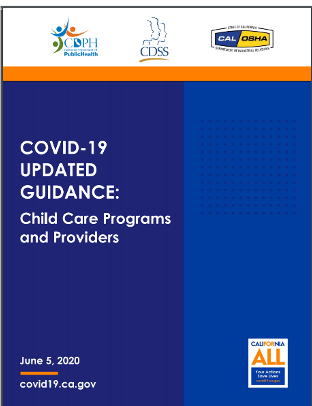 On June 5, 2020, the California Department of Public Health issued Updated Guidance for Child Care Programs and Providers that aims to support child care providers and programs as they begin to reopen and other programs transition from emergency childcare for essential workers to enhanced regular operations.
On June 5, 2020, the California Department of Public Health issued Updated Guidance for Child Care Programs and Providers that aims to support child care providers and programs as they begin to reopen and other programs transition from emergency childcare for essential workers to enhanced regular operations.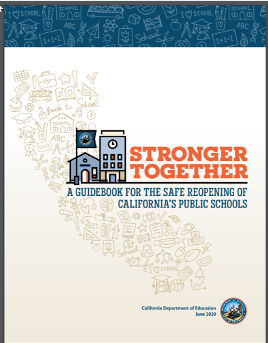 On June 8, 2020, the CDE released a guidance document that includes a section on school-based early learning and care programs, “Stronger Together: A Guidebook for the Safe Reopening of California’s Public Schools.” A web version of the guidance document can now be found on the CDE Stronger Together webpage.
On June 8, 2020, the CDE released a guidance document that includes a section on school-based early learning and care programs, “Stronger Together: A Guidebook for the Safe Reopening of California’s Public Schools.” A web version of the guidance document can now be found on the CDE Stronger Together webpage.

 Kids Included Together (KIT) says, “Pinpointing exactly what it means and looks like to be inclusive can be tough because creating a sense of belonging for each child will differ from person to person and camp to camp. But, that’s really what it is – creating a sense of belonging for each camper.”
“So, where do you start and how do you know if you’ve gotten there? Well, providing a meaningful experience for every camper may look varied, but it will be rooted in a few universal principles.” This article provides helpful considerations to add to KIT’s inclusion checklist.
Kids Included Together (KIT) says, “Pinpointing exactly what it means and looks like to be inclusive can be tough because creating a sense of belonging for each child will differ from person to person and camp to camp. But, that’s really what it is – creating a sense of belonging for each camper.”
“So, where do you start and how do you know if you’ve gotten there? Well, providing a meaningful experience for every camper may look varied, but it will be rooted in a few universal principles.” This article provides helpful considerations to add to KIT’s inclusion checklist.


